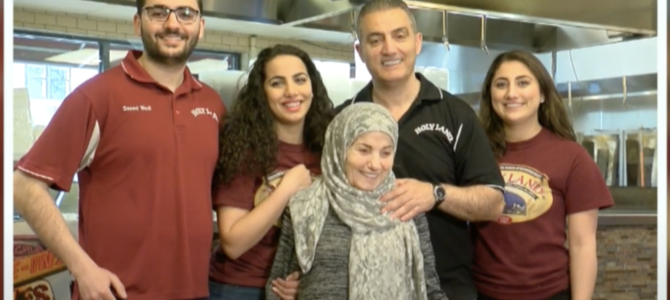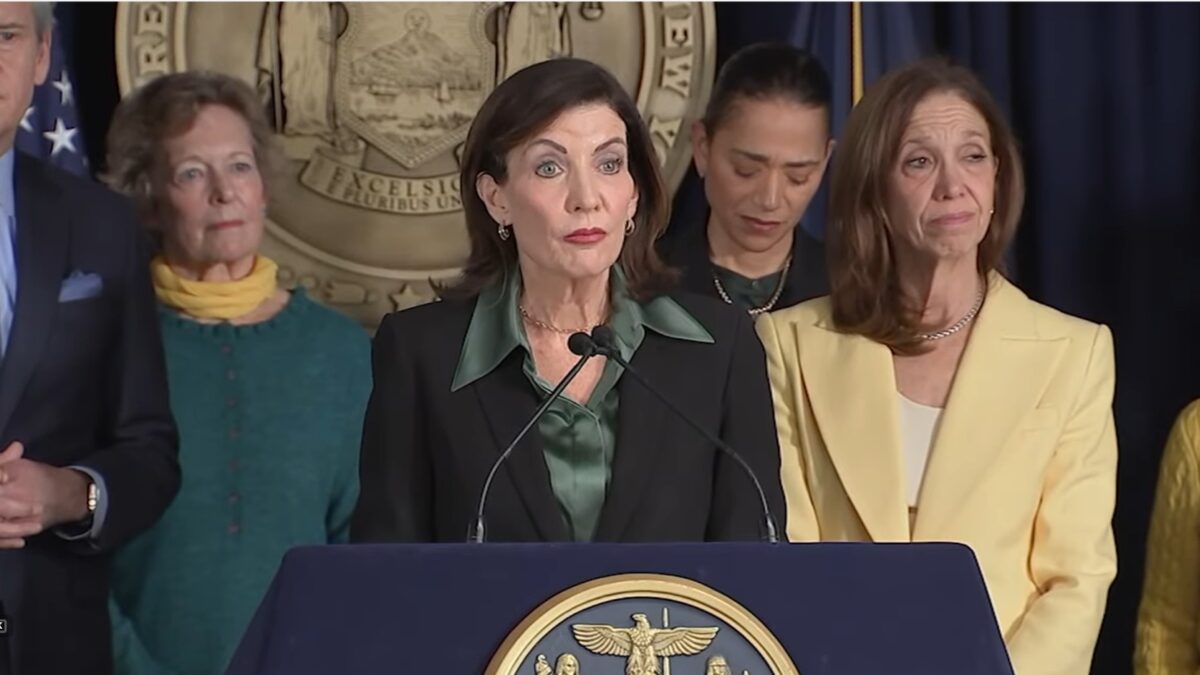“We need to stop playing to the crowd,” Bari Weiss says. “We need to stop the mindless loyalty to our tribe. And we need to stop being silent at the expense of being honest, because it’s coming at great cost. Not just to people like Majdi, but to the American project itself.”
Weiss is a former New York Times and Wall Street Journal journalist. Majdi Wadi is an immigrant and successful business owner. Both have stared the cancel mob in the face—and both are stronger, although certainly not unscathed. They recorded the first episode of Weiss’s new podcast, entitled “Honestly,” to discuss America’s cultural revolution and what we can do to fight it.
Weiss made headlines last summer when she resigned from The New York Times. Weiss published a scathing resignation letter, in which she lamented that “Twitter is not on the masthead of The New York Times. But Twitter has become its ultimate editor.”
Weiss has not left the conversation with her prestigious job. “The most interesting conversations in American life now happen in private,” Weiss asserts. “[My new podcast] is bringing them out of the closet.”
The first story Weiss chooses to bring “out of the closet” is the story of her friend, Wadi. He and his family business, Weiss says, are “like a walking advertisement for the American dream.” Wadi is a Palestinian who was born and raised in Kuwait, where he and his family weren’t even treated as second-class citizens, but as “third or fourth-class citizens,” he said.
America was their shining city on the hill, the only place where they dreamed they could make a home and thrive. And that’s exactly what they did.
Starting in the early ’90s, Wadi’s family turned a Mediterranean business in Minneapolis, Minnesota into an enterprise of almost 200 employees, complete with a supermarket, restaurant, hummus factory, bakery, and catering business. They named it Holy Land, to signify that all are welcome, irrespective of their religion.
Holy Land employs Americans from all different backgrounds. Unlike ethnic restaurants that mainly provide for those already familiar with their cuisine and culture, Holy Land prides itself on serving a broader customer base.
Wadi’s family was so shocked by the death of George Floyd that he and his family donated food to the protestors and hung Black Lives Matter signs in their windows. They empathized and mourned with their city. Wadi’s daughter even marched in the streets. Wadi and his family therefore seem like unlikely targets of the wokeists, but targets they have become.
It recently surfaced that Wadi’s daughter posted a series of tweets when she was 16 that she and her family now, quite publicly, deem inexcusable and heinous. “Top 3 races you wish to eliminate. Ready, go! Jews, blacks, and the fats,” one tweet read.
Wadi does not defend the tweets. He says they’re “horrible.” His daughter apologized on TV, saying the comments in no way represent her or her views. The family is mortified and apologetic.
Protestors nonetheless began to boycott Holy Land, amid demands for Wadi to fire his daughter. So Wadi fired her. Amid calls to attack his family’s home, Wadi evacuated his family to a safe house for their protection.
Holy Land lost more than $5 million in contracts from places such as Costco, Target, and Super Value. The landlord at his store’s biggest location said Wadi was no longer welcome, so he closed the location.
Wadi watched as the community he loved turned against him, and he struggled to demonstrate loyalty to his neighbors. Rather than take legal action against the landlord who closed his largest business location, Wadi submitted. He did not want his local neighbors—many of them small mom and pop shops without insurance—to suffer.
“I [sacrificed] this location to protect the other businesses and the tenants […] living in the same building,” Wadi said. He feared the rioters would destroy his neighbors’ properties.
Wadi then had to begin laying off employees. Due to a few tweets that he and his family all admit are inexcusable, Wadi was forced to fire 69 employees, some of whom had worked at Holy Land for more than 15 years and many with minority backgrounds.
An “ancient idea of collective guilt” forced the entire Holy Land ecosystem to suffer, and those who defended Wadi’s family were canceled. Wadi goes into much more detail in Weiss’s podcast, but the point is clear: America is becoming like the places Wadi fled.
“This is not what America is about,” Wadi says. “[…] When we were in Jordan, me and my roommate, when we wanted to talk about politics, we used to whisper in each other[’s] ears. […] Because we were scared that somebody would listen to our beliefs and they were going to report us and then we [were] gonna pay the price. People like us who came from […] third-world countr[ies] and saw the conflict and lived the stories, different wars […] we lived through all of this and people here are taking things for granted.”
Today, Wadi’s daughter can’t keep a job in the United States because of tweets she sent when she was 16. She holds herself responsible for her family’s suffering. She won’t let her father re-hire her, for fear of hurting those she loves. Her punishment is a “life sentence,” Majdi and Weiss lament.
Wadi’s daughter has been forced to flee the shining city on a hill. She hopes she’ll find better prospects in London.
“The main goal [of this soft cultural revolution],” Weiss says, “is to send a message to everyone else. Step out of line, and you’re next. Normal people who watch others being attacked or expelled or demonized, they have a perfectly human response. They stay quiet. The threat of public shaming has been massively, enormously, amazingly effective. It has led to an epidemic of self-silencing and fear.”
But the self-silencing, Weiss and Wadi agree, needs to stop. Otherwise, America will cease to be America.









